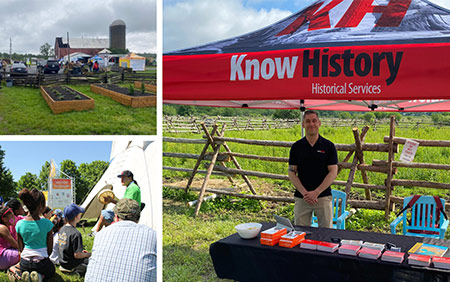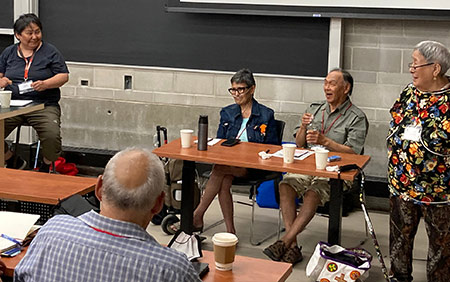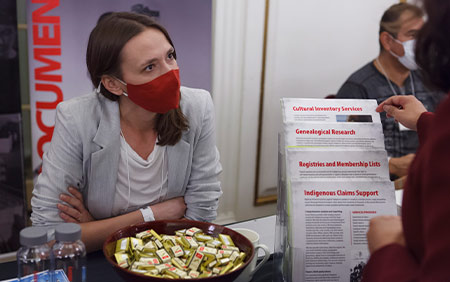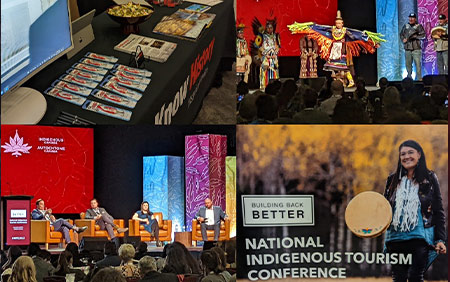For 10 years Know History has worked to capture many of the unique stories that make up our past, inform our present, and inspire the future. As we consider ongoing efforts to decolonize the how and why we work, it is a top priority to ensure that when we give back to the community, it’s not only impactful, but also effective. We accomplish this goal through thought leadership, scholarships, pro bono projects, and monetary donations.
The below report outlines our impact over the past year.
Pro-Bono Projects
Every year we provide hundreds of hours of pro-bono research services to support communities as they undertake important heritage projects.
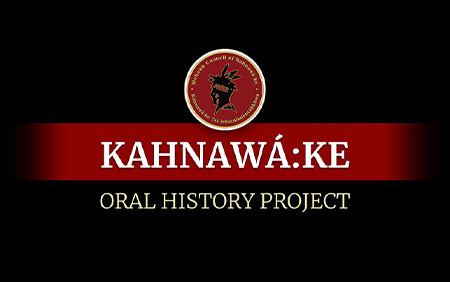
Kahnawá:ke Oral History Project, Kahnawá:ke
Know History has partnered with the Mohawk Council of Kahnawá:ke to help capture and preserve the oral histories of the community’s Elders for future generations. Know History’s team met with Elders to help collect their stories about life in Kahnawá:ke, recollections from their childhoods spent in the community, as well as their culture, language, and history. Videos taken during these interviews will be used to create a short documentary that will be shared with the interviewees and their families during a community event, as well as full-length interview recordings that will be held by the Mohawk Council of Kahnawá:ke. We are honoured to be a part of helping preserve the memories and knowledge of Kahnawá:ke’s Elders.
Canadian Garden Council
In celebration of the Year of the Garden, Know History collaborated with the Canadian Garden Council to develop a list of the 100 most influential gardening moments in Canadian history. The list honours the lasting contributions of individuals in the horticultural sector and tells the expansive and vibrant story of Canadian garden culture. Our research team identified more than 130 moments, ranging from Indigenous sea gardens in British Columbia to historic vineyards in Ontario. After being reviewed by the Canadian Garden Council’s expert committee, the list was narrowed down to 100 historically significant sites, persons, and events from across Canada. The list can be viewed on the Canadian Garden Council’s website, and will continue to expand as more research is conducted into each moment.
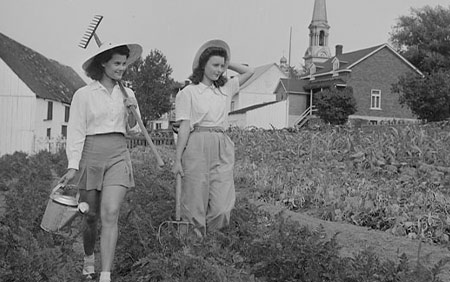
Highlighted Projects
In addition to contributing to communities through our donations and pro-bono work, we are honoured to work on projects that preserve and share important stories about Canada’s past. Below are a few of the most impactful projects we worked on this year:
Survivor’s Secretariat
Since November 2021, Know History has worked closely with the Survivors’ Secretariat to collect over 12,000 archival documents that shed light on the history of the Mohawk Institute Residential School in Brantford, Ontario. Through this research, Know History has helped identify 43 previously unrecorded children who died while attending the Institute. These deaths are in addition to the 48 already confirmed by the National Centre for Truth and Reconciliation. Know History continues to support the Survivors’ Secretariat through historical research. You can read more about the Survivors Secretariat here.
Juno Beach
Located in Normandy, France, the Juno Beach Centre serves as a memorial to the Canadians who served during the Second World War, including the 5,500 who were killed during the Battle of Normandy. Know History is honoured to be working collaboratively with the Centre to redesign the final room of their permanent exhibitions and ensure the preservation of this important legacy. As part of this work, our team has collected artefacts and recorded stories of Canadians who continue to serve our country, inspired by the sacrifices made by those before them.
Outreach
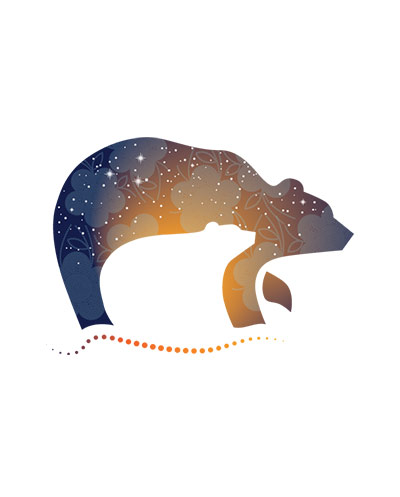
National Gathering on Unmarked Burials
Kimberly Murray, Independent Special Interlocutor, and her team are working closely with Indigenous leaders, communities, Survivors, families and experts to recommend a new legal framework to ensure the ethical protection and treatment of unmarked graves and burial sites at former residential schools. Know History is proud to support this process by attending National Gatherings across Canada and providing resources support communities as they work to access, collect, analyze and store archival documents about residential schools.
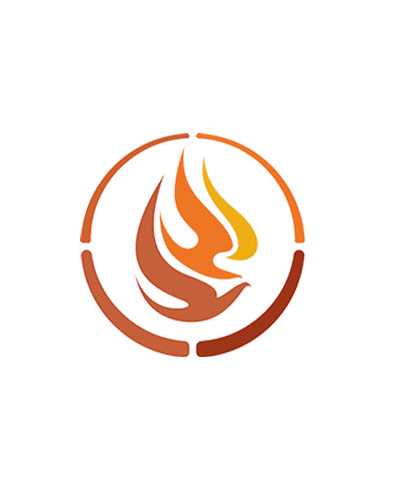
NCTR Community Dialogues
We were honoured to participate in the National Centre for Truth and Reconciliation’s “Community Dialogues on Unmarked Burials & Missing Children.” The two-day gathering was focused on intercommunity support and learning. Know History’s team provided an overview of how Indigenous Nations can conduct archival research to identify children who did not return from residential schools.
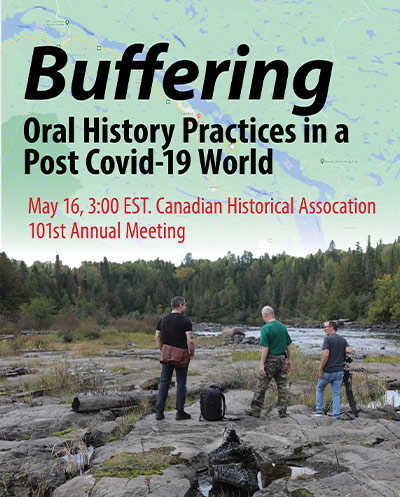
2022 Canadian Historical Association Annual Meeting
At Know History, we value the opportunity and importance of entering into dialogue with other professionals in the historical research field. The Canadian Historical Association’s (CHA) Annual Meeting, now in its 101st year, brings together historians from across Canada to showcase their research and discuss diverse issues relating to the field. At this year’s meeting, Know History was represented by six of our staff, including our own CEO Ryan Shackleton, who gave presentations on their own research and findings.
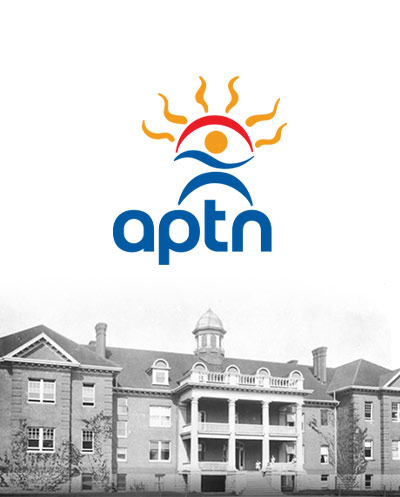
Aboriginal People’s Television Network
Know History has worked closely with the Survivors’ Secretariat to collect over 12,000 archival documents about the Mohawk Institute Residential School. Research Director Alice Glaze joined survivors and leadership to speak about this ongoing research on Aboriginal People’s Television Network.

